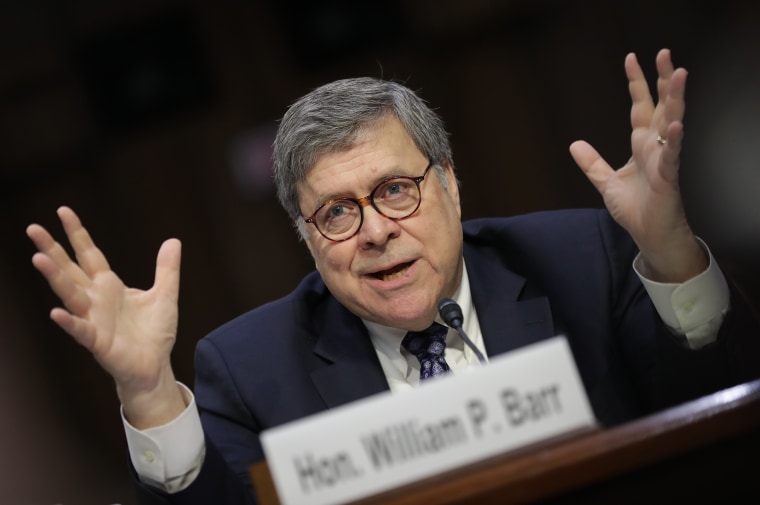It's been 25 days since Special Counsel Robert Mueller delivered his findings to Attorney General Bill Barr, and pretty much all we know about that final report comes from Donald Trump's handpicked AG. Barr's characterization of the document -- he included some fragments, but no complete sentences from Mueller's report -- have served as the basis for Republican celebrations, a White House victory lap, and taunts from skeptics of the Russia scandal.
With a redacted version of the report scheduled to be released in about 48 hours, we'll get a better sense of whether those pro-Trump cheers had merit, but in the meantime, there's a question that lingers over the debate: why exactly are so many so quick to take Barr's assessment at face value?
The president's allied attorney general has faced a series of legitimate questions about his credibility, stemming from years of controversies, his unsolicited memo criticizing the Mueller investigation, and more recently, his willingness to endorse a Trump conspiracy theory.
Yesterday, a new area of concern came to light. NYU law professor Ryan Goodman wrote at Just Security:
On Friday the thirteenth October 1989, by happenstance the same day as the "Black Friday" market crash, news leaked of a legal memo authored by William Barr. He was then serving as head of the Justice Department's Office of Legal Counsel (OLC). It is highly uncommon for any OLC memo to make headlines. This one did because it was issued in "unusual secrecy" and concluded that the FBI could forcibly abduct people in other countries without the consent of the foreign state. The headline also noted the implication of the legal opinion at that moment in time. It appeared to pave the way for abducting Panama's leader, Gen. Manuel Noriega.Members of Congress asked to see the full legal opinion. Barr refused, but said he would provide an account that "summarizes the principal conclusions." Sound familiar?
Goodman's piece is worth reading in its entirety, but to briefly summarize, Barr wrote a summary of an important document for lawmakers, and a few years later, it became obvious that his account omitted key conclusions from the original document.
In effect, Barr took a major legal report, used his discretion to remove relevant portions, and told lawmakers what he wanted them to know.
Three decades later, Barr has the Mueller report, which he's already been accused of mischaracterizing for political reasons, and we're waiting for his office to complete a redaction process before sharing the findings with the public.
Maybe the history is irrelevant. Maybe the attorney general will handle this in a perfectly responsible manner, the redactions will be minor and defensible, and the questions about his independence and credibility will be answered in a satisfying way.
But given the circumstances, it's difficult to blame skeptics for having doubts.
